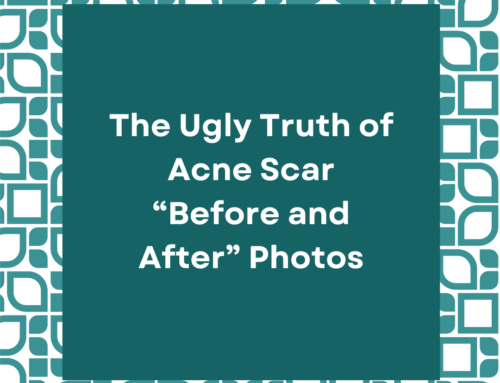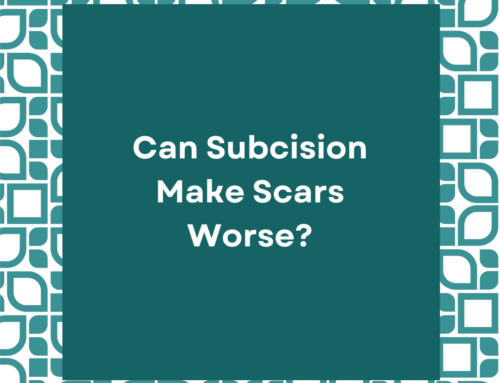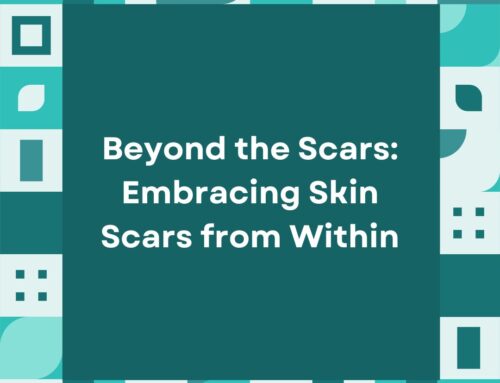Acne scars are a common skin concern that can affect people of all ages. They can occur when pimples, cysts, or other types of acne become inflamed and damage the skin tissue. Acne scars can take many forms, including ice pick scars, boxcar scars, and rolling scars. No matter what type of acne scar you have, there are several treatment options available to help reduce their appearance and improve the overall appearance of your skin.
What is Laser resurfacing of the skin for acne scars?
One of the most popular treatments for acne scars is laser resurfacing. This procedure uses a laser to remove the top layer of skin and stimulate the production of collagen, which helps to smooth out the skin and reduce the appearance of scars.
There are several different types of laser treatments available, including fractional laser resurfacing, CO2 laser resurfacing, and erbium laser resurfacing. Each type of laser has its own unique benefits and drawbacks, so it is important to speak with a dermatologist to determine which type of laser is best for your specific needs
What is microneedling?
Another popular treatment for acne scars is microneedling. This procedure involves the use of a device with tiny needles that puncture the skin and create small wounds.
These wounds trigger the body’s natural healing process, which helps to stimulate collagen production and improve the appearance of scars.
Microneedling can be done with or without the use of radiofrequency energy, which helps to further stimulate collagen production and improve skin texture.
What is a dermal filler?
Dermal fillers are another option for treating acne scars. These injectable products are used to plump up the skin and smooth out indentations caused by scars.
There are several different types of dermal fillers available, including hyaluronic acid fillers and calcium hydroxylapatite fillers. Dermal fillers can be used to treat a variety of acne scar types, including ice pick scars and boxcar scars.
What is a chemical peel?
Chemical peels are another treatment option for acne scars. These procedures use a solution to remove the top layers of skin, which helps to smooth out the skin and reduce the appearance of scars. Chemical peels can be done at different depths, depending on the severity of the scars and the desired results. There are several different types of chemical peels available, including glycolic acid peels, salicylic acid peels, and trichloroacetic acid peels.
What is Dermabrasion or Microdermabrasion?
Dermabrasion and microdermabrasion are two popular skin resurfacing treatments that are used to improve the appearance of scars, wrinkles, and other blemishes on the skin.
Dermabrasion involves the use of a rotating tool to abrade the top layers of skin, while microdermabrasion uses a fine abrasive material to gently exfoliate the surface of the skin.
Both treatments can be effective in improving the texture and appearance of the skin, but they are best suited for mild to moderate skin imperfections.
More severe scars may require more aggressive treatment methods, such as laser resurfacing or chemical peels. It is important to discuss all treatment options with a qualified dermatologist or plastic surgeon to determine the best course of action for your individual needs.
Should I use At-Home Treatments without Consultation First? The Short Answer is NO.
In addition to these more traditional treatments, there are also several at-home options for treating acne scars. Topical treatments, such as retinoids and alpha hydroxy acids, can help to stimulate collagen production and improve the appearance of scars.
These treatments can be found in a variety of skin care products, including creams, gels, and serums. It is important to speak with a dermatologist at Scar Healing Institute before using any at-home treatments, as some of these products can be irritating or cause side effects that can make your skin worsen.
No matter what type of acne scars you have, it is important to be patient and consistent with your treatment plan. It can take several weeks or even months to see significant improvement, and it is important to follow your treatment plan as directed by your dermatologist at Scar Healing Institute.
In addition to treatment, it is also important to practice good skin care habits, such as washing your face twice a day, using a gentle cleanser, and applying a broad-spectrum sunscreen with at least SPF 30.
How Can I Find An Acne Treatment that is Right for me?
If you’re concerned about acne scars and want to find a treatment that works for you, the first step is to speak with a licensed medical dermatology expert by contacting one of the dermatologists at Scar Healing Institute.
They can assess your specific needs and recommend the best treatment options for you. With the right treatment plan and good skin care habits, you can significantly improve the appearance of your acne scars and achieve smoother, clearer skin.
It is important to note that not all treatments work for all people, and it may take some trial and error to find the best treatment plan for your specific needs. It is also important to be realistic about your expectations.
While many treatments can improve the appearance of acne scars, it is unlikely that they will completely eliminate them. However, with the right treatment plan and a consistent skincare routine, you can significantly reduce the appearance of your acne scars and improve the overall appearance of your skin.
Should I use At-Home Remedies without Consultation First? The Short Answer is NO.
In addition to traditional treatments, there are also several home remedies that may help to reduce the appearance of acne scars. Some people find that using natural ingredients, such as aloe vera, coconut oil, and honey, can help to soothe the skin and improve the appearance of scars. These ingredients can be found in a variety of natural skincare products, or they can be applied directly to the skin.
It is important to keep in mind that home remedies may not be as effective as traditional treatments, and they may not be suitable for everyone. If you’re considering using a home remedy to treat your acne scars, it is important to speak with a dermatologist to ensure that it is safe and appropriate for your specific needs.
Acne Scars are a Common Skin Problem, But We have the solutions for you!
In conclusion, acne scars are a common skin concern that can affect people of all ages. There are several treatment options available to help reduce their appearance, including laser resurfacing, microneedling, dermal fillers, chemical peels, and topical treatments. It is important to speak with a dermatologist at Scar Healing Institute to determine the best treatment plan for your specific needs. Also, keep in mind it’s important to be patient and consistent with your treatment plan to achieve the best results.
Schedule an Appointment
Scar Healing Institute
Scar Healing Institute is committed to developing the most effective treatments for scarring. Our team of scar revision specialists are continually inventing the latest technologies and formulas to deliver the best results for our patients.




